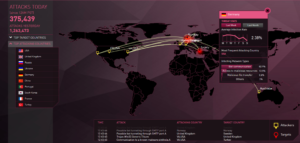Should Cybersecurity be your next Adventure
So, you’re contemplating exploring the fascinating field of cybersecurity, eh? It’s a world full of intrigue, challenges, and yes, even a little bit of hacking (the ethical kind, of course)! As someone with a degree in Computer Networks and Security, who’s shared the wisdom as a Cybersecurity lecturer in the UK, you’ve got a head start. Let’s find out whether this field is right for you, chat about some salary figures, explore potential career, essential skills, and on the contrary to what your parents might think, a degree isn’t always the right choice for everyone!
Is Cybersecurity Right Up Your Alley?
Before delving into the specifics, it’s crucial to determine whether a career in cybersecurity aligns with your interests and aptitudes. What does a Cybersecurity professional do anyway? They are responsible for protecting computer systems, networks, and data from cyber threats. Key qualities that can make you a good fit for this field include:
- Analytical Thinking: Ability to analyse complex problems and find solutions is paramount in cybersecurity.
- Attention to Detail: Cyber threats often hinge on small vulnerabilities, so a keen eye for detail is crucial.
- Ethical Mindset: Strong sense of ethics is necessary, as cybersecurity professionals often handle sensitive and confidential information.
- Continuous Learning: The cybersecurity landscape is constantly evolving, so a thirst for knowledge and a commitment to ongoing learning is vital.
The Figures
One of the most attractive aspects of a career in cybersecurity is the potential for high earnings. Salaries can vary widely depending on factors like experience, location, and specific roles within the field. Entry-level jobs, like Cybersecurity Analysts, typically fetch you around £40,000 to £65,000 a year. And when you scale the ladder to positions like Chief Information Security Officer (CISO) or Chief Technology Officer (CTO), you’re flirting with six figures!
The Jobs You Can Pursue
Cybersecurity is a broad field with various specialised roles. Here are some common job titles you can pursue:
- Security Analyst: Responsible for monitoring an organisation’s networks for security breaches and responding to incidents.
- Penetration Tester (Ethical Hacker): Ethically hacks into systems to identify vulnerabilities before malicious hackers can exploit them.
- Security Consultant: Advises organisations on security best practices, conducts risk assessments, and helps develop security strategies.
- Security Engineer: Designs and implements security solutions, such as firewalls and encryption protocols.
- Chief Information Security Officer (CISO): A senior executive responsible for an organisation’s overall cybersecurity strategy.
Skills You Gotta Flex
While a specific degree isn’t always mandatory in cybersecurity, having one can certainly be beneficial. Common degrees include Computer Science, Information Technology, or Cybersecurity. However, what matters most in this field are your skills. Here are some essential skills for a successful cybersecurity career:
- Technical Proficiency: You should be familiar with operating systems, networking, and programming languages like Python.
- Cybersecurity Tools: Learn how to use tools like Wireshark, Nmap, and Metasploit for various tasks.
- Certifications: Earning certifications such as CompTIA Security+, Certified Ethical Hacker (CEH), Certified in Cybersecurity (CC) and Certified Information Systems Security Professional (CISSP) can enhance your credibility.
- Problem-Solving: Cybersecurity professionals need to think critically and solve complex problems effectively.
- Communication Skills: You’ll often need to communicate technical information to non-technical stakeholders.
If you can’t wait to start building your skills in Cybersecurity and want to do it right now, Here’s a free course you can start…
(ISC)² is generously offering free training, course materials, and exam vouchers for Certified in Cybersecurity (CC) to the first one million learners. Despite the rapidly growing demand for cybersecurity professionals, the talent pool remains relatively small. So, why wait? Seize this golden opportunity, sign up now, and equip yourself with the skills and certification you need to become a cybersecurity hero in this thriving field!
Now, About That Degree…
Ah, the age old debate – to degree or not to degree. While having that diploma hanging on your wall can’t hurt, it’s not the be all and end all. Your real superpower lies in your practical experience and mad skills. But hey, if you want to up your game and flaunt some additional street cred, check out courses like “Cybersecurity Essentials,” “Network Security Fundamentals,” and “Web Application Security” – they’ll sharpen your already impressive toolkit.
So, there you have it! Whether you’re diving headfirst into a career in cybersecurity or just want to level up your skills, this field offers endless opportunities. It’s a wild, ever changing adventure that rewards the dedicated and the troubleshooting mindset. If you have what it takes, the world of cybersecurity awaits your expertise and dedication.
Fun fact: The image below is of a Live Cyber Threat Map. This provides real-time visualisations of cyberattacks, showing their geographic origin, types (e.g., DDoS, malware), and attack intensity. It helps users monitor ongoing threats, target organisations, and emerging trends, enabling swift responses to cyber threats.

